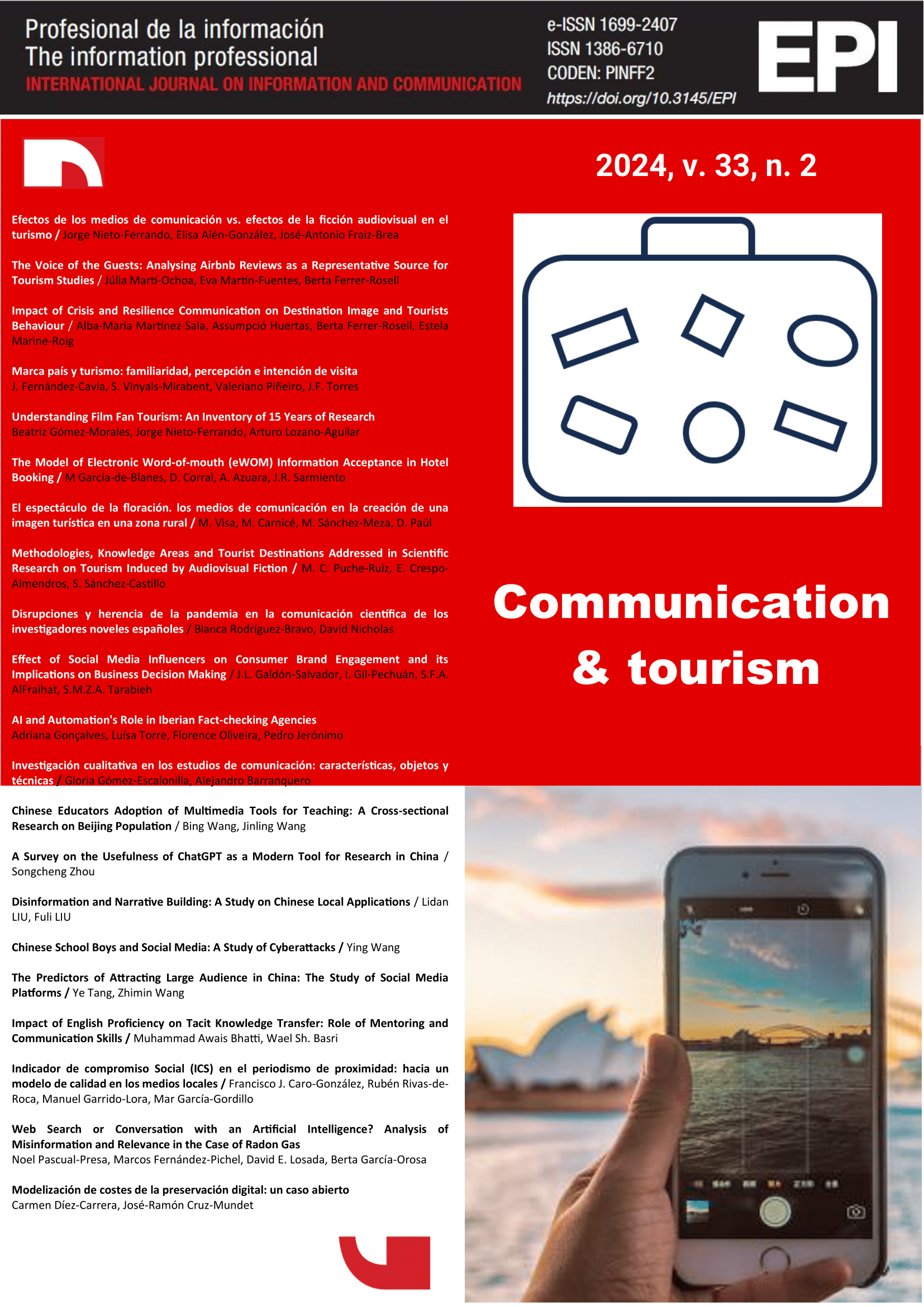Understanding Film Fan Tourism: An Inventory of 15 Years of Research
DOI:
https://doi.org/10.3145/epi.2024.0205Keywords:
Film Tourism, Film-induced Tourism, Film Fan Tourist, Audiovisual Fiction, Travel Motivations, Travel Experience, Fan Creative Practices, Fan Community, Tourist Profile, Tourism Segmentation, Literature ReviewAbstract
The first studies of film and television as inducers of tourism appeared in the 1990s. From the outset, research in this area has identified a diverse range of tourist profiles, highlighting the fact that audiovisual media fans constitute an important segment of the tourism market because fan consumers dedicate considerable amounts of time, money, and energy to pursuing their specific interest. As a result, academic researchers have developed a substantial body of knowledge in this field over a relatively short period. The objective of this article is to offer a critical review of studies that have enhanced our understanding of film fan tourists to identify critical gaps in knowledge and, consequently, propose new ways to fully integrate the fan perspective into studies of audiovisual fiction-induced tourism. To this end, all the articles dealing with this specific tourist profile indexed in Web of Science, Scopus, and Google Scholar (49) have been identified and analysed based on their year of publication, geographical location, type of audiovisual production studied, methodology adopted and composition of the sample, major research themes and main theoretical and/or practical contributions. This review of the literature on film fan tourists finds that our understanding of the specific characteristics of the profile and behaviour of this type of tourist is still limited. This is due to some extent on the lack of consensus on the definition of the concept of “fans”, which has led to the erroneous classification of tourists whose travel motivation has nothing to do with a film and/or television production—and who may not even be fans of that production—as film fan tourists. The recommendations of this review thus focus mainly on reaching a consensus on the definition of the concept and establishing a single set of selection criteria for future research
Downloads
Downloads
Published
How to Cite
Issue
Section
License
Copyright (c) 2024 Profesional de la información

This work is licensed under a Creative Commons Attribution 4.0 International License.
Dissemination conditions of the articles once they are published
Authors can freely disseminate their articles on websites, social networks and repositories
However, the following conditions must be respected:
- Only the editorial version should be made public. Please do not publish preprints, postprints or proofs.
- Along with this copy, a specific mention of the publication in which the text has appeared must be included, also adding a clickable link to the URL: http://www.profesionaldelainformacion.com
- Only the final editorial version should be made public. Please do not publish preprints, postprints or proofs.
- Along with that copy, a specific mention of the publication in which the text has appeared must be included, also adding a clickable link to the URL: http://revista.profesionaldelainformacion.com
Profesional de la información journal offers the articles in open access with a Creative Commons BY license.




